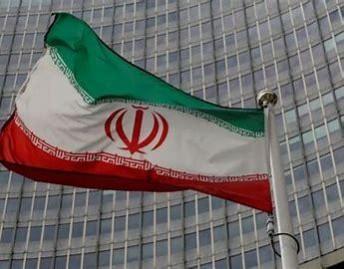Israel's spy agency Mossad chief David Barnea has reacted to Iran's renewed nuclear deal with world powers. Barnea said that Mossad won't partake in the charade of emerging accord "based on Iranian lies" and would most certainly not prevent from carrying out spy agency's operations.
"The deal is based on Iranian lies. Iran has sought to build a nuclear weapon that endangers Israel's existence. The deal will easily help them reach this goal under international legitimization," Barnea said at a conference at Herzliya's Reichman University, in his first public speech since becoming head of the spy agency in June 2021.
Barnea said the status of the nuclear deal is irrelevant as it will not provide Iran immunity from Mossad operations. "We will not take part in this charade. We will not close our eyes to the proven truth. The Iranian regime will have no immunity," he warned.

Barnea vowed to protect Israel and its citizens and warned of painful retaliation in case of attacks against the country or its people.
"The Iranian leadership must understand that attacks against Israel or Israelis, directly or indirectly by proxies, will be met with a painful response against those responsible, on Iranian soil. We will not pursue the proxies, but the ones who armed them and gave the orders, and this will happen in Iran," Barnea warned.
Mossad chief also revealed that the agency foiled "dozens of Iranian terror attacks against Israelis and Jews abroad", including Cyprus, Turkey, Colombia and others. "In all of them, the perpetrators were caught in possession of the means of killing," he said.
Iran reacts to Mossad chief's warning
Reacting to Barnea's warnings, Iran's foreign ministry spokesperson didn't express any shock or surprise. "We do not expect a terrorist regime anything other than terrorist actions," the spokesperson was quoted as saying.

Iran's nuclear deal
Iran signed the JCPOA with world major countries in July 2015, agreeing to curb its nuclear programme in return for removing sanctions on the country. However, former US President Donald Trump pulled Washington out of the agreement and reimposed unilateral sanctions on Tehran, prompting the latter to drop some of its commitments under the pact.
The talks on the JCPOA's revival began in April 2021 in Vienna but were suspended in March this year because of political differences between Tehran and Washington.
The latest round of the nuclear talks was held in Austria in early August after a five-month hiatus. On August 8, the EU put forward its "final text" of the draft decision on reviving the JCPOA.
EU expresses serious doubts on Iran's nuclear deal
On Saturday, France, Germany and Britain said in a joint statement that Iran "has chosen not to seize this critical diplomatic opportunity" given by a recent EU-submitted "final set of texts" to rescue the nuclear pact, voicing their "serious doubts as to Iran's intentions and commitment to a successful outcome on the JCPOA".
The Iranian Foreign Ministry called the EU's statement "unconstructive" and "in breach of goodwill."
"It is surprising and regrettable that under the current circumstances when diplomatic interactions and exchange of messages continue between the negotiating sides and the coordinator of the Vienna talks to finalise the negotiations, the EU troika issues such a statement in a move that deviates from the path of the fruitful approach during the talks," Iran's Foreign Ministry spokesman Nasser Kanaani was quoted as saying on Saturday.

















